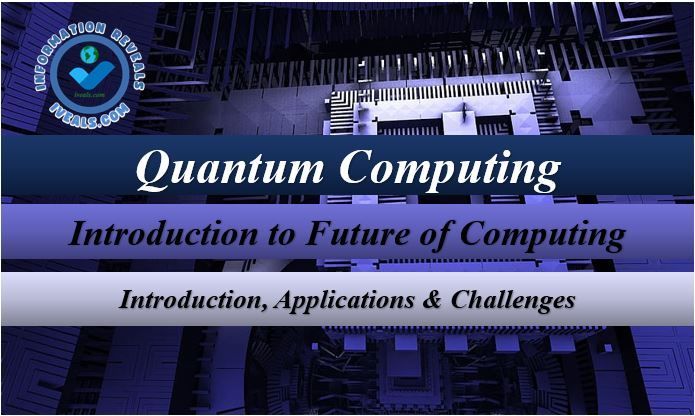Quantum computing has emerged as a beacon of potential, promising to revolutionize our comprehension and application of computational processes. At its core, quantum computing harnesses the peculiar principles of quantum mechanics to perform calculations at unprecedented speeds. This paradigm shift challenges the classical computation framework, introducing a new era where data storage, processing, and problem-solving are fundamentally redefined.
To grasp the essence of quantum computing, one must first disentangle the complex strands of its operational methodologies. Traditional computers utilize bits as their foundational unit of information, represented as either a 0 or a 1. In contrast, quantum computers employ quantum bits or qubits, which can exist simultaneously in multiple states due to the phenomenon of superposition. This ability to operate across a continuum of possibilities exponentially increases computational power, allowing for calculations that would be infeasible for classical systems.
Moreover, another pivotal principle driving quantum computers is entanglement, a unique relationship between qubits that allows them to be interdependent, irrespective of the distance separating them. When qubits become entangled, the state of one immediately influences the state of another, enabling the concurrent processing of complex tasks. This leads to profound implications for fields such as cryptography, materials science, and artificial intelligence, where traditional solutions often falter under the weight of complexity.
The promises of quantum computing are manifold, and its potential applications span numerous sectors. In the realm of cryptography, quantum computing could redefine data security. Classical encryption methods, including RSA and AES, rely heavily on the computational difficulty of certain mathematical problems. Quantum algorithms, notably Shor’s algorithm, can efficiently factor large integers and solve discrete logarithms, fundamentally undermining the security of current cryptographic systems. This necessitates the evolution of post-quantum cryptography, ensuring the robustness of digital communications in a quantum-dominated future.
In addition to cryptography, quantum computing holds transformative potential in the field of drug discovery. The intricate nature of molecular interactions often demands simulations that are computationally prohibitive for classical computers. Quantum simulations can model the behavior of molecules with unprecedented accuracy, enabling researchers to identify potential drug candidates more swiftly and effectively. This capability not only expedites the drug discovery process but also fosters personalized medicine, tailoring treatments to individual genetic profiles.
The financial sector is another domain poised to reap significant benefits from the advent of quantum computing. High-frequency trading, risk analysis, and portfolio optimization are examples of tasks that can be executed with enhanced efficiency through quantum algorithms. By processing vast datasets and uncovering intricate patterns, firms can make informed decisions at unparalleled speeds, thus gaining a competitive edge in the intricate dance of financial markets.
The domain of machine learning and artificial intelligence (AI) stands to be profoundly impacted by quantum computing as well. Quantum machine learning merges quantum mechanics with traditional machine learning frameworks, yielding algorithms that can sift through data exponentially faster than their classical counterparts. Such advancements could lead to significant breakthroughs in natural language processing, image recognition, and predictive analytics, reshaping the landscape of AI applications.
However, the journey towards mainstream quantum computing is fraught with challenges. The fragility of qubits, susceptibility to decoherence, and the imperative for fault-tolerance are among the formidable hurdles researchers face. Quantum systems currently operate at extremely low temperatures and require sophisticated error correction methods to maintain stability. These barriers underscore the necessity for continual investment in quantum research and development to realize the technology’s full potential.
The future of quantum computing beckons with promise, yet it demands a shift in perspective and an appetite for intellectual curiosity. As we stand on the precipice of this technological revolution, individuals and organizations must begin contemplating how to integrate quantum capabilities into their operational frameworks.
Fostering collaboration between academic institutions, industry leaders, and governments will be crucial in navigating the complexities associated with this nascent technology. The synthesis of diverse expertise will catalyze innovation, leading to new quantum algorithms and applications that we are only beginning to envision.
For those intrigued by the potential of quantum computing, pursuing education in fields such as physics, computer science, or mathematics becomes imperative. Engaging in interdisciplinary research, attending seminars, and participating in hackathons dedicated to quantum computing will build the foundational knowledge necessary to contribute to this evolving domain. Public discourse around quantum ethics and governance will also play a vital role in steering its development. Questions of access, equity, and security must be addressed candidly to ensure that the fruits of quantum advancements benefit society as a whole.
In conclusion, quantum computing is not merely a technological innovation; it embodies a profound philosophical shift in our understanding of computation and its implications. As interest in this field grows, so too does the responsibility of those engaging with it. The convergence of curiosity, education, and ethical reflection will define our trajectory into the quantum future, inviting us to question not only how we compute but also how we harness this remarkable potential for the benefit of humanity.












